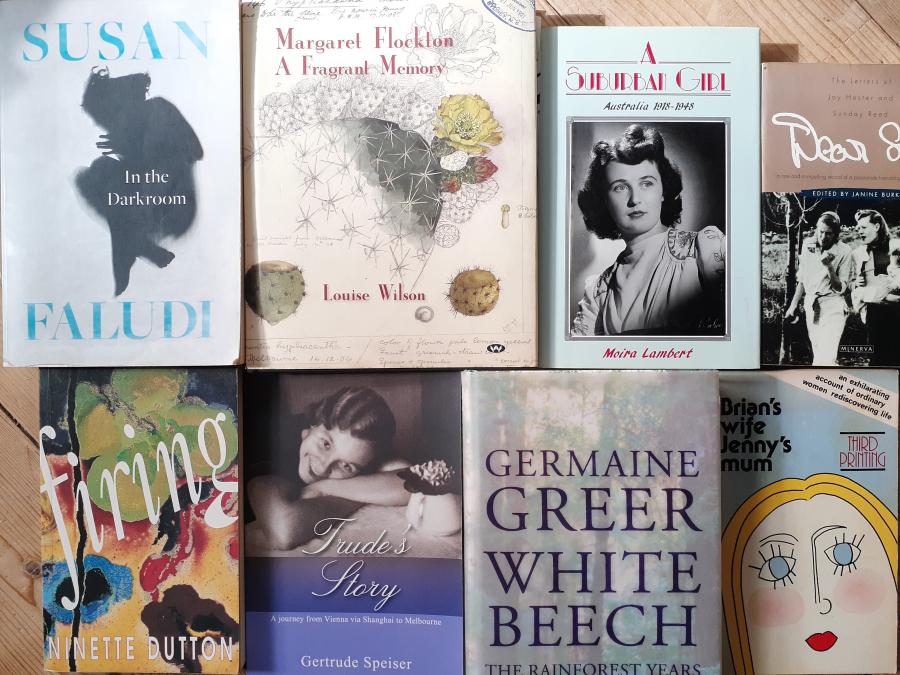
The list can be
Dr Kristy Love
***
In offering this list of references,
History books tend to focus on
The list includes several classics of feminist literature and women’s rights - a must for understanding the changing political and social forces at play in women’s lives. It also encompasses texts on intersectional feminism
The list includes books that provoke thinking about the Indigenous Australian women whose families were decimated by colonisation and whose children were forcibly removed under racist acts of Parliament. It includes references about sexual and reproductive rights. About the difficult paths faced by single or unmarried mothers, many of whom also gave up their children under duress.About the lives of women who faced perilous journeys as they immigrated here or fled dire circumstances in their countries of origin. About the pioneering women, both free settlers and convicts, many of whom had to endure multiple births from a young age. Many women suffered harsh conditions living on the goldfields and on isolated back-country farms and stations.
It includes books about those women who lived lives outside of the norms of the time, such as those criminalised by poverty, or those demonised by differing historical ideas about mental health and institutionalisation.
The list also provides references about the organisations set up by women to support other women, about the collectives of women who fought for equality and changes in legal status - the right to vote, to own property, to work, to education, and for reproductive rights. Other
We encourage you to explore the list and welcome suggestions for additions.
Dr Kristy Love
***
You can add your
* ABOUT THE CONTRIBUTOR
Dr Kristy Love (formerly Davidson) is a
Image credits
In the Darkroom by Susan Faludi (Willam Collins, 2016) - her investigation of her violent father and his new identity as a 'complete woman'.
Margaret Flockton: A Fragrant Memory by Louise Wilson (Wakefield Press, 2016) - the story of Australia's first professional botanical artist.
A Suburban Girl: Australia 1918-1948, by Moira Lambert (MacMillan, 1990) - a memoir of 'the urban, middle-class life of her times'.
Dear Sun: the Letters of Joy Hester and Sunday Reed, (ed) Janine Burke (Minerva 1997) - a powerful and intimate friendship between two remarkable women in Melbourne's art world of 1940s.
Firing by Ninette Dutton (Editions Tom Thompson, 2011) - an autobiography 'for her granddaughter...who is part of the story'.
Trude's Story: A journey from Vienna via Shanghai to Melbourne, by Gertude Speiser (Makor Jewish Community Library, 2008) - memoir of escape from Nazi Austria and emigration to start a new life.
White Beech: The Rainforest Years by Germaine Greer (Bloomsbury, 2014) - memoir of 'an old dog, who succeeded in learning a load of new tricks' restoring sixty hectares of Qld rainforest.
Brian's wife, Jenny's mum, by Judy [et al]: presented by Gwen Wesson (Dove, 1975) - writing of 'ordinary housewives'.
Add file here

